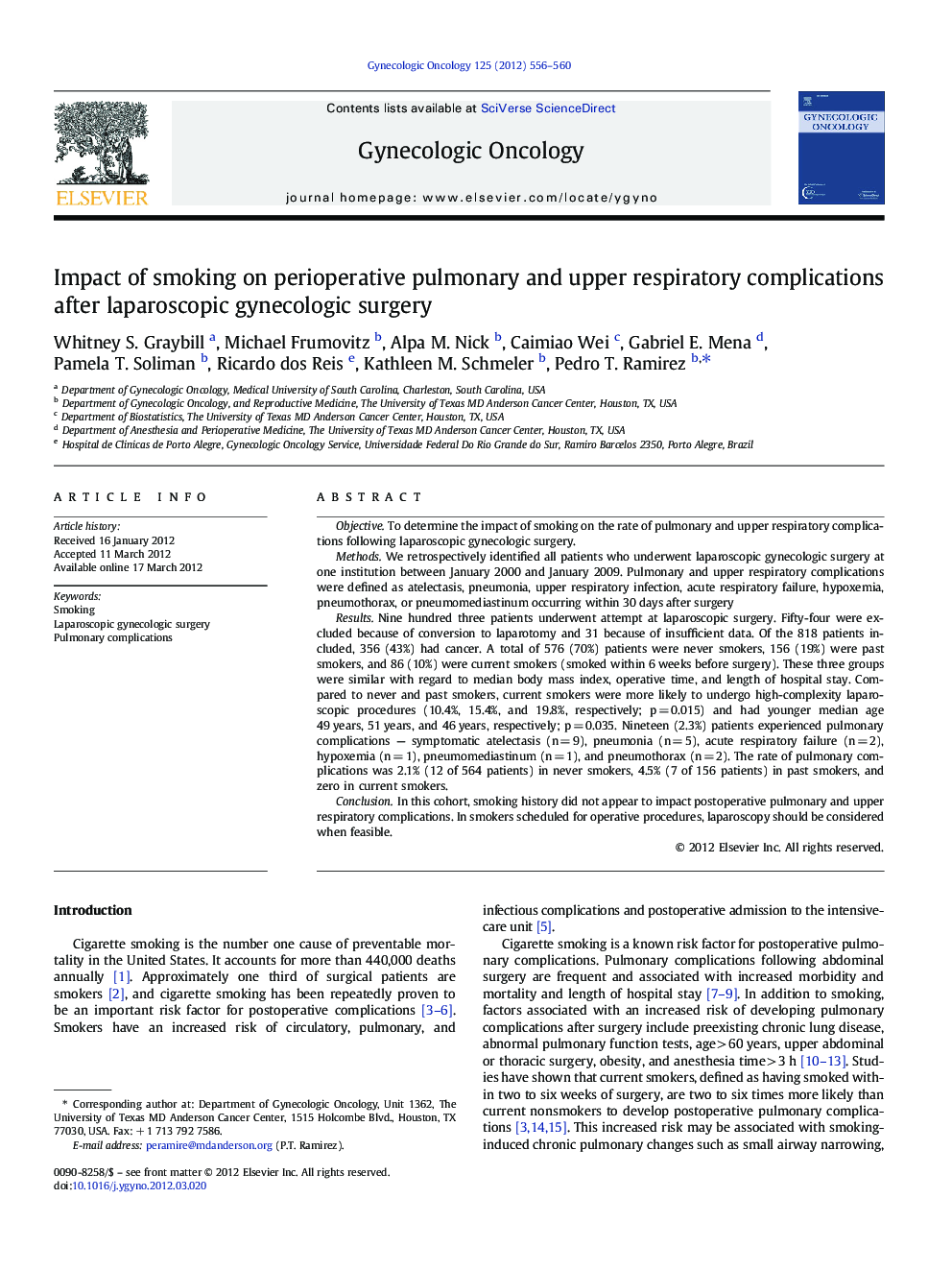| Article ID | Journal | Published Year | Pages | File Type |
|---|---|---|---|---|
| 3945015 | Gynecologic Oncology | 2012 | 5 Pages |
ObjectiveTo determine the impact of smoking on the rate of pulmonary and upper respiratory complications following laparoscopic gynecologic surgery.MethodsWe retrospectively identified all patients who underwent laparoscopic gynecologic surgery at one institution between January 2000 and January 2009. Pulmonary and upper respiratory complications were defined as atelectasis, pneumonia, upper respiratory infection, acute respiratory failure, hypoxemia, pneumothorax, or pneumomediastinum occurring within 30 days after surgeryResultsNine hundred three patients underwent attempt at laparoscopic surgery. Fifty-four were excluded because of conversion to laparotomy and 31 because of insufficient data. Of the 818 patients included, 356 (43%) had cancer. A total of 576 (70%) patients were never smokers, 156 (19%) were past smokers, and 86 (10%) were current smokers (smoked within 6 weeks before surgery). These three groups were similar with regard to median body mass index, operative time, and length of hospital stay. Compared to never and past smokers, current smokers were more likely to undergo high-complexity laparoscopic procedures (10.4%, 15.4%, and 19.8%, respectively; p = 0.015) and had younger median age 49 years, 51 years, and 46 years, respectively; p = 0.035. Nineteen (2.3%) patients experienced pulmonary complications — symptomatic atelectasis (n = 9), pneumonia (n = 5), acute respiratory failure (n = 2), hypoxemia (n = 1), pneumomediastinum (n = 1), and pneumothorax (n = 2). The rate of pulmonary complications was 2.1% (12 of 564 patients) in never smokers, 4.5% (7 of 156 patients) in past smokers, and zero in current smokers.ConclusionIn this cohort, smoking history did not appear to impact postoperative pulmonary and upper respiratory complications. In smokers scheduled for operative procedures, laparoscopy should be considered when feasible.
► Smoking history does not appear to impact postoperative pulmonary complications in this cohort of patients undergoing laparoscopic gynecologic surgery. ► Pulmonary complications after laparoscopy are lower than those reported after laparotomy. ► The development of a pulmonary complication translated into a significantly longer hospital stay.
